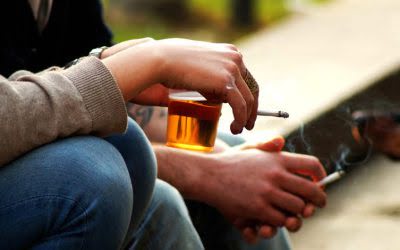Content
If leaving a job or finding a new one isn’t possible, many places offer leave for health-related reasons, including addiction recovery. Be sure to speak with the human resources department or your boss to review your options. Alexandra oversees all operations with The Freedom Center to ensure clients are given the best chance at success. She works with The Freedom Center team to develop and implement policies, procedures and oversees Intakes and Transportation. Alexandra works with Admissions and Clinical Departments for scheduling client admissions, transfers, discharges and outside appointments while maintaining positive relationships with all clients.
- Most participants were explicit that they needed performance-based progress at work.
- As a disorder that affects millions, addiction is hard to break free from.
- When a person has completed a substance abuse program, he or she may be able to join an alumni program.
- Removing these conditions from home life can change the trajectory of recovery for the better.
- Many participants performed extreme actions during this time, including treatment ward escapes and self-harm.
- She has served in both clinical and leadership positions in a number of roles, in inpatient and outpatient settings, as a Primary Therapist and Clinical Supervisor.
To many participants, a lack of such relevant options from the treatment provider or social network sparked a need to differentiate. Long-term recovery is when a person maintains sobriety for an extended period of time. The best way to prepare for sobriety is with an active aftercare plan. Like the body, alcohol and drugs can impact mental health in a negative way.
Submitting to Treatment: A Struggle to Balance Rigid Treatment Structures With a Need for Autonomy
Also, this does not compromise the validity of the findings, even if it limits generalizability to the most severe and prolonged SUD conditions. This study does not perform the isolation of single factors aiding recovery, e.g., that of therapy versus that of medication or social support. This exploratory study is part of an ongoing prospective clinical cohort study investigating long-term course and outcome in a representative sample of individuals with SUD (19, 20).
Mary goes above and beyond to exceed expectations and is dedicated to outstanding service. All participants had attended 12-step meetings (Table 2); 90% were attending at the time the survey was taken. Median length of AA and NA membership were 12 years and 6 years, respectively. Current levels of affiliation were high as evidence by frequency of meeting attendance and sponsoring activities. When they can identify the signs of a potential relapse and get help before that happens, this could help prevent a relapse.
What is “Long Term Sobriety”?
Edward loves to share his passion for the field through writing about addiction topics, effective treatment for addiction, and behavioral health as a whole. Alongside personal experience, Edward has deep connections to the mental health treatment industry, having worked as a medical office manager for a psychiatric consortium for many years. A veteran of two branches of the U.S. military, Max is continuing his education in healthcare administration. Max began his career in the addiction field working as a group facilitator and teacher, developing and delivering a successful faith-based curriculum in a long-term residential treatment setting.
In addition, this sample demonstrated other affiliative activities identified as beneficial to the recovery process, such as having a sponsor and sponsoring others (e.g., Caldwell and Cutter, 1998). Although the actual reduction of substance use is a cornerstone of recovery, our findings also highlight social factors as imperative to quality of life (47) and long-term success (10). The content of recovery processes changes over time as coping strategies and functioning improve (4), with treatment needs changing accordingly. Reflecting previous research, findings suggest that, for many, during the acute phase, key needs are drug reduction in a professionally provided, highly structured drug-free social setting. However, later-stage social recovery requires the individual to embark on a highly personal process of personal responsibility and real-life social adaption to a drug-free lifestyle.
What are disasters?
Samantha is a compassionate therapist dedicated to helping individuals navigate their mental health challenges and find healing and recovery. Currently pursuing her advanced degree in psychology, Samantha’s personal journey of overcoming addiction fuels her passion for supporting others on their path to wellness. Samantha’s own journey of recovery serves as a powerful https://curiousmindmagazine.com/selecting-the-most-suitable-sober-house-for-addiction-recovery/ foundation for her therapeutic services. She approaches her work with empathy, understanding, and non-judgment, recognizing that everyone’s path to healing is unique. Finally, a brief discussion of the use of formal and informal recovery resources among study participants. There has been virtually no research on this topic using a long-term perspective.
As a consequence, our findings highlight a considerable problem for common clinical practice, where early termination and lack of individual tailoring and process awareness might sabotage any early recovery successes. Most participants (65%) provided more than one answer to describe significant recovery experiences. The escalating negative consequences of substance use were cited most often as important reasons for either getting or staying sober (46%). Negative consequences spanned all areas of life, from physical and mental health to economic and social. Substance related accidents, arrests and legal trouble were cited by 22% of respondents, bringing the total percentage of negative consequence-related answers to 68%. Help and support of family, friends and peers (including “interventions by someone”) were also cited frequently (30%).
In clinical settings, it is critical to learn about clients’ social networks and about network members’ attitudes toward abstinence and recovery. Finally, clinicians should emphasize the importance of establishing and maintaining affiliation with recovery support groups such as 12-step fellowships. The important role of clinicians in referring clients to 12-step groups has been consistently recognized (e.g., Caldwell, 1999; Humphreys, 1997; Cross et al., 1990; Vaillant, 1983). There is evidence that 12-step affiliation patterns are often set early on when clients are in treatment and remain rather consistent in the early recovery process (e.g., Weiss et al., 2000).
- In fact, our findings illustrate that even in a SUD sample with good prognosis, recovery is dependent on intense, long-term, and individually tailored support.
- This is why I am pleased to announce that we are officially rebranding.
- Researchers say this data — and this lived experience — contradicts a widespread misperception that substance-use disorder is a permanent affliction and often fatal.
- People walk past an East Harlem health clinic that offers free needles and other services to drug users on in New York.
- The majority of inpatient addiction treatment programs offer their clients a program that lasts up to 90 days.
Many participants performed extreme actions during this time, including treatment ward escapes and self-harm. James Scribner holds a bachelor’s degree from the University of Maryland’s Robert H. Smith School of Business. His career began working in the accounting industry as a financial auditor. In that role, James audited a national trade association with over 1,300 member companies that sell health insurance coverage to more than 200 million Americans. He also conducted official financial examinations of various non-profit organizations and for-profit corporations. This experience allowed him to learn the inner workings of almost any aspect of a company.
Reclaim Life Purpose
However, some people may still suffer through post-acute withdrawal syndrome (PAWS). Many people have completed or are continuing to work through a treatment program. These programs should be complemented with therapy and support groups. Some people also move into a sober living facility to encourage recovery. Melissa McCarthy is the Vice President of Business Development at Amatus Health. With a decade of experience in the behavioral healthcare and addiction treatment industry, McCarthy is passionate about recovery.







